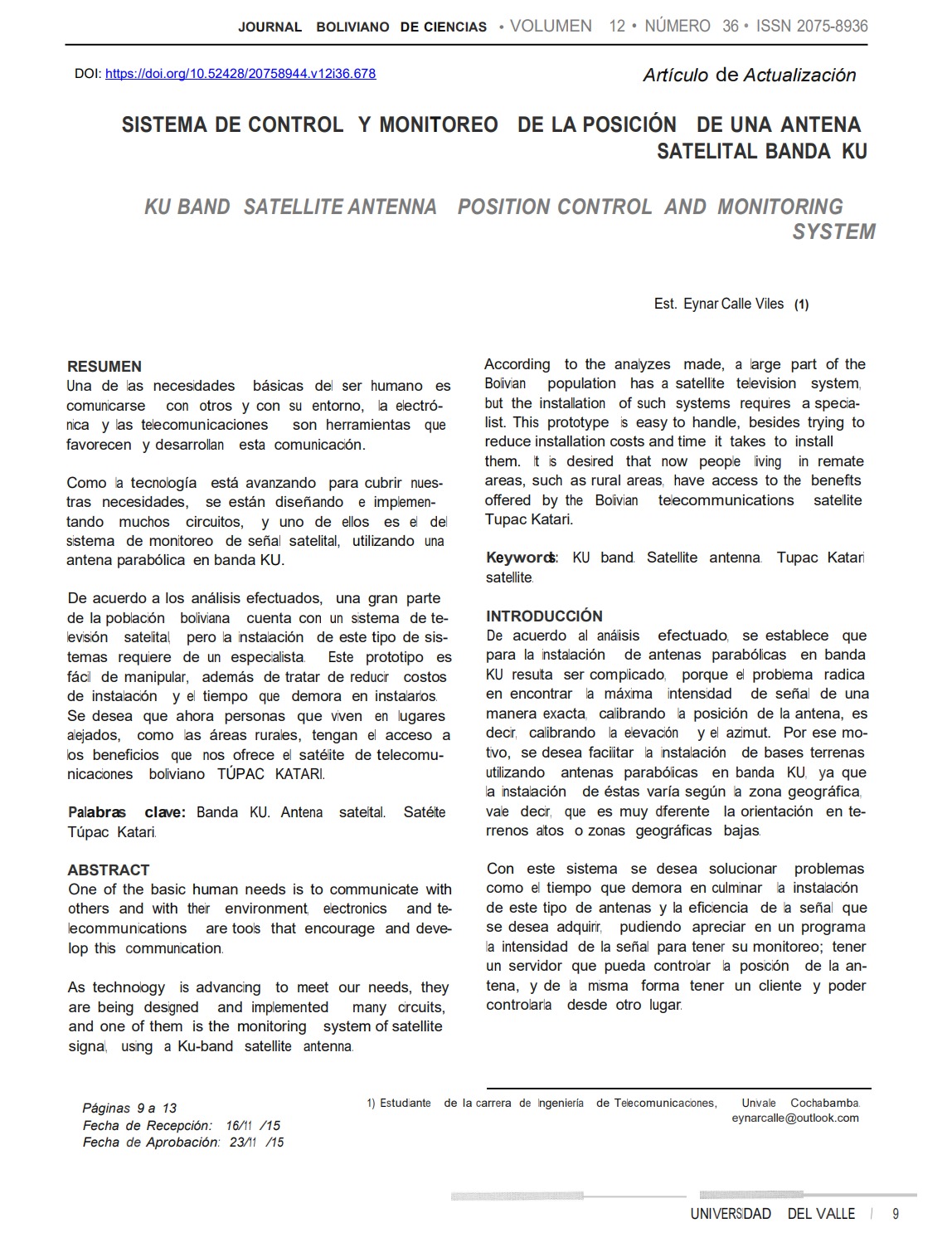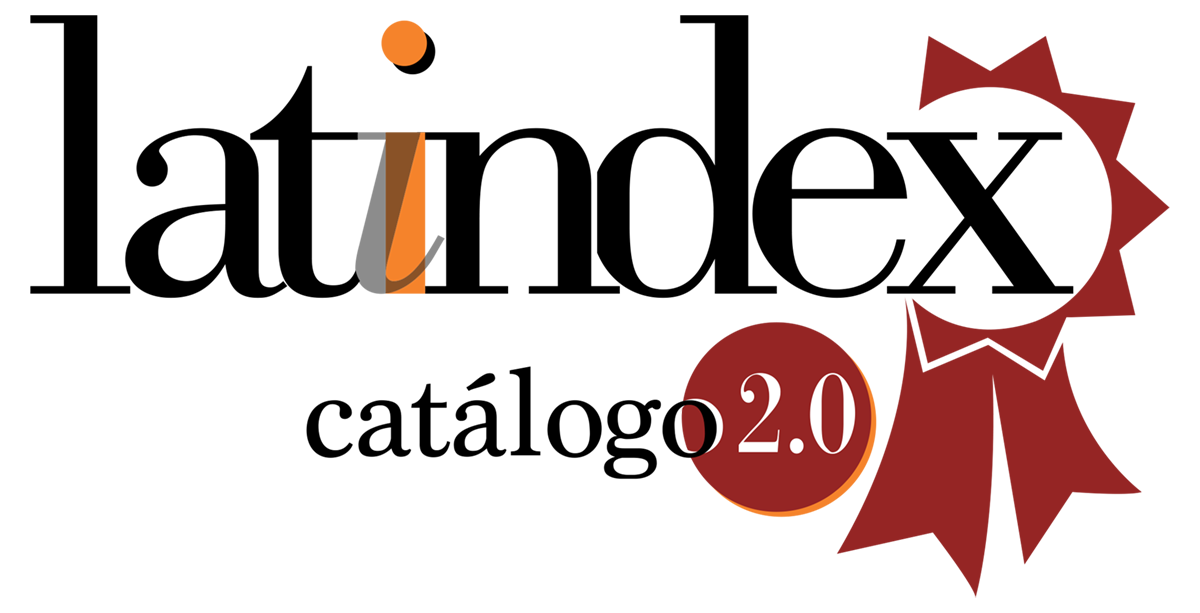KU Band Satellite Antenna Position Control and Monitoring System
DOI:
https://doi.org/10.52428/20758944.v12i36.678Keywords:
KU band, Satellite antenna, Tupac Katari satelliteAbstract
One of the basic human needs is to communicate with others and with their environment, electronics and telecommunications are tools that encourage and develop this communication. As technology is advancing to meet our needs, they are being designed and implemented many circuits, and one of them is the monitoring system of satellite signal, using a Ku-band satellite antenna. According to the analyzes made, a large part of the Bolivian population has a satellite television system, but the installation of such systems requires a specialist. This prototype is easy to handle, besides trying to reduce installation costs and time it takes to install them. lt is desired that now people living in remate areas, such as rural areas, have access to the benefits offered by the Bolivian telecommunications satellite Tupac Katari
Downloads
References
J.TOCCI, R. (s.f.). (2013, agosto 10) Obtenido de: "Sistemas Digitales Principios y Aplicaciones".
ARDUINO (2013, Septiembre 03) Obtenido de: https://www.arduino.cc/
BLAKE, R. (s.f.). (2013,julio 08) Obtenido de: "Sistemas electrónicos de comunicación" 2° edición.
ABE. (s.f.). (2013, junio 13) Obtenido de ABE: http://www.abe.bo/index.html

Downloads
Published
How to Cite
Issue
Section
License
Copyright (c) 2016 Eynar Calle Viles

This work is licensed under a Creative Commons Attribution 4.0 International License.
Authors who publish with this journal agree to the following terms:
- Authors retain copyright and grant the journal right of first publication with the work simultaneously licensed under a Creative Commons Attribution License 4.0 that allows others to share the work with an acknowledgement of the work's authorship and initial publication in this journal.
- Authors are able to enter into separate, additional contractual arrangements for the non-exclusive distribution of the journal's published version of the work (e.g., post it to an institutional repository or publish it in a book), with an acknowledgement of its initial publication in this journal.
- Authors are permitted and encouraged to post their work online (e.g., in institutional repositories or on their website) prior to and during the submission process, as it can lead to productive exchanges, as well as earlier and greater citation of published work.














